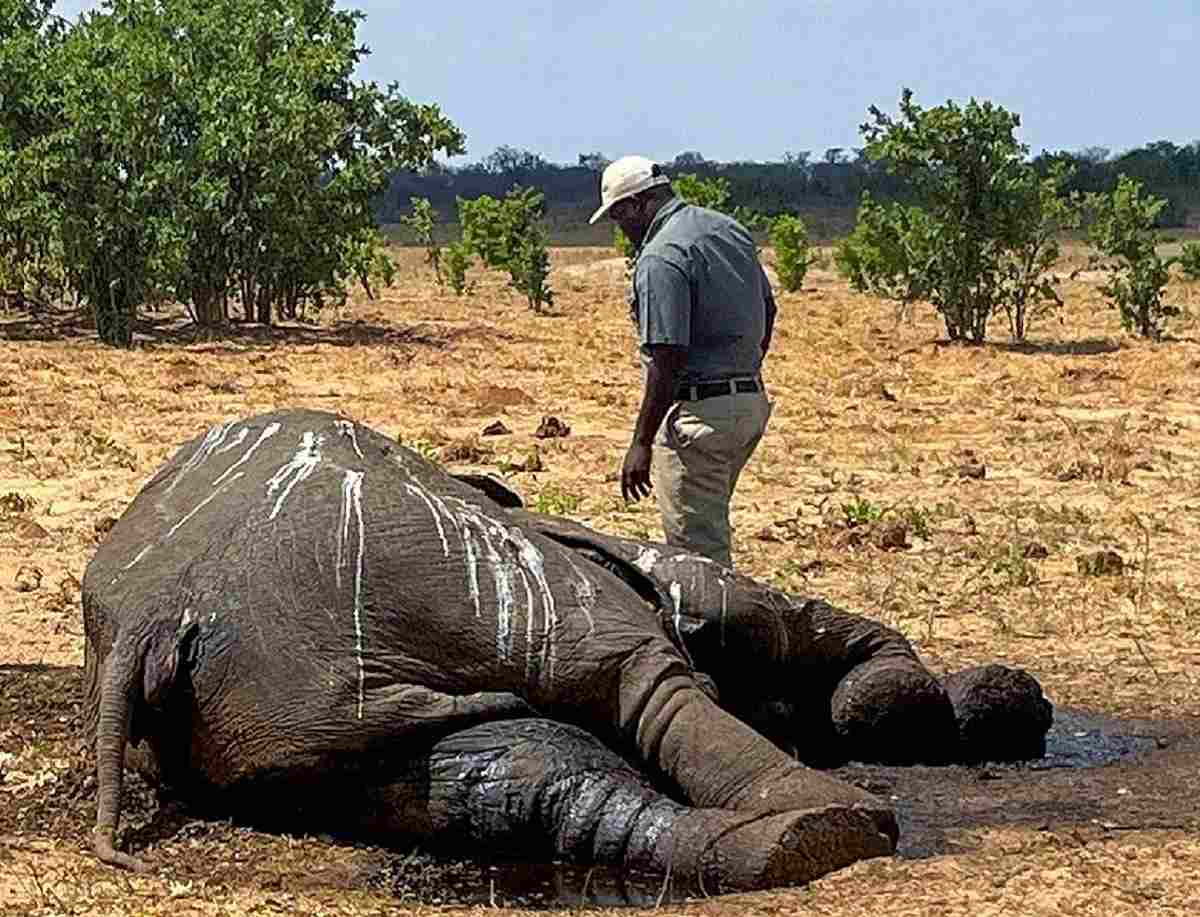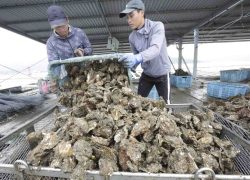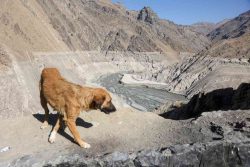
An official inspects the carcass of an elephant in Hwange National Park, Zimbabwe, in December 2023.
16:51 JST, June 13, 2024
LIVINGSTONE, Zambia (Reuters) — Southern African countries home to the largest elephant population in the world fear a rise in animal deaths in the coming months as food and water sources dwindle following a severe drought.
The region experienced an extended hot dry spell during its 2023/24 rainy season, attributed to El Nino, a weather phenomenon marked by the warming of the waters in the eastern Pacific, leading to hotter weather across the world. El Nino has worsened the impact of climate change, scientists say.
The drought has affected water and food supplies for humans, livestock and wildlife.
Zimbabwe lost 160 elephants in its premier Hwange National Park in the year to January 2024, according to the country’s wildlife authority.
Botswana lost 300 elephants to drought last year, according to its environment ministry.
Others like Zambia have also confirmed deaths of elephants in its national parks, with Minister of Environment Rodney Sikumba describing the drought as “devastating.”
The five countries making up the Kavango-Zambezi (KAZA) conservation area — Zimbabwe, Zambia, Botswana, Angola and Namibia, home to a combined 227,000 elephants — are meeting in Livingstone, Zambia, to discuss sustainable wildlife management.
“The drought has had an adverse effect and you would notice that most of the watering holes in parks around KAZA are drying up,” Sikumba told Reuters on the sidelines of the conference.
“In the absence of water and food, you will see carcasses dotted around the parks.”
The Zimbabwe Parks and Wildlife Authority (Zimparks) said it had received $3 million from the country’s disaster fund to boost water supply in national parks, but its director general Fulton Mangwanya said this was not enough to save wildlife.
“We have over 150 solar powered boreholes. However, it will not stop the elephants from dying when the drought hits hard. We are ready for the drought, but some situations cannot be avoided,” Mangwanya said.
Delegates said climate change has worsened human-wildlife conflict as elephants encroach on human habitat in search of food and water. Last year Zimbabwe lost 50 people to elephant attacks.
Philip Kuvawoga, the International Fund for Animal Welfare’s (IFAW) director for landscape conservation, said wildlife faced a bigger risk of food shortage due to the drought and heightened fire risk.
“Fire management is important so we retain and sustain food available for wildlife,” he said.
Top Articles in Science & Nature
-

Japan Institute to Use Domestic Commercial Optical Lattice Clock to Set Japan Standard Time
-

iPS Treatments Pass Key Milestone, but Broader Applications Far from Guaranteed
-

Record 700 Startups to Gather at SusHi Tech Tokyo in April; Event Will Center on Themes Like Artificial Intelligence and Robotics
-

iPS Cell Products for Parkinson’s, Heart Disease OK’d for Commercialization by Japan Health Ministry Panel
-

Japan to Ban Use of Power Banks on Airplanes
JN ACCESS RANKING
-

Japan PM Takaichi’s Cabinet Resigns en Masse
-

Japan Institute to Use Domestic Commercial Optical Lattice Clock to Set Japan Standard Time
-

Israeli Ambassador to Japan Speaks about Japan’s Role in the Reconstruction of Gaza
-

Man Infected with Measles Reportedly Dined at Restaurant in Tokyo Station
-

Videos Plagiarized, Reposted with False Subtitles Claiming ‘Ryukyu Belongs to China’; Anti-China False Information Also Posted in Japan






















